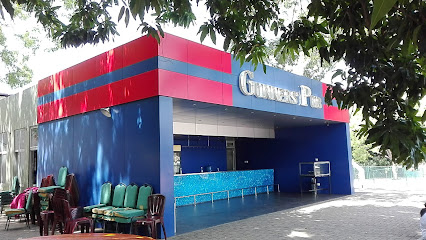
Discover the Majestic Dalada Maluva in Polonnaruwa
Explore Dalada Maluva in Polonnaruwa, a UNESCO World Heritage Site, and immerse yourself in the rich history and stunning architecture of ancient Sri Lanka.
Dalada Maluva, a stunning historical landmark in Polonnaruwa, invites tourists to explore its rich heritage and architectural marvels. This UNESCO World Heritage Site showcases the grandeur of ancient Sri Lankan civilization and offers a glimpse into its storied past, making it a must-visit for history enthusiasts and travelers alike.
A brief summary to Dalada Maluva - ( Polonnaruwa)
- W2X2+3F5, Polonnaruwa, LK
- +94272224066
Local tips
- Visit early in the morning or late in the afternoon to avoid crowds and capture the best light for photography.
- Hire a local guide to gain deeper insights into the history and significance of the ruins.
- Wear comfortable shoes, as you'll be walking on uneven surfaces while exploring the site.
- Don't forget to bring water and sunscreen, as the area can get quite hot during the day.
Getting There
-
Car
If you are traveling by car from Kandy, take the A1 highway towards Matale. After approximately 30 km, take the A6 towards Dambulla and continue on this road for about 70 km. Once you reach Dambulla, follow the signs to Polonnaruwa along the A11 road, which is about 60 km. Upon entering Polonnaruwa, follow the main road until you reach W2X2+3F5, where Dalada Maluva is located. Parking is available near the entrance.
-
Public Transportation
To reach Dalada Maluva by public transportation from Kandy, you can take a bus from the Kandy bus station to Polonnaruwa. The journey will take approximately 3-4 hours and costs around LKR 300-500. Once you arrive at the Polonnaruwa bus station, you can either take a tuk-tuk (approximately LKR 150-200) or walk (about 1.5 km) to Dalada Maluva located at W2X2+3F5.
-
Train and Tuk-Tuk
If you prefer to travel by train, take a train from Kandy to Habarana. From Habarana, you can catch a bus or a tuk-tuk to Polonnaruwa, which is approximately 30 km away. The train journey takes about 2-3 hours and costs around LKR 150-300. Once in Polonnaruwa, hire a tuk-tuk to reach Dalada Maluva at W2X2+3F5 for about LKR 200.
Discover more about Dalada Maluva - ( Polonnaruwa)
Iconic landmarks you can’t miss
Velaikkar Inscription
0.0 km
Explore the Velaikkar Inscription in Polonnaruwa, a historical gem showcasing the rich cultural heritage of Sri Lanka through exquisite ancient inscriptions.
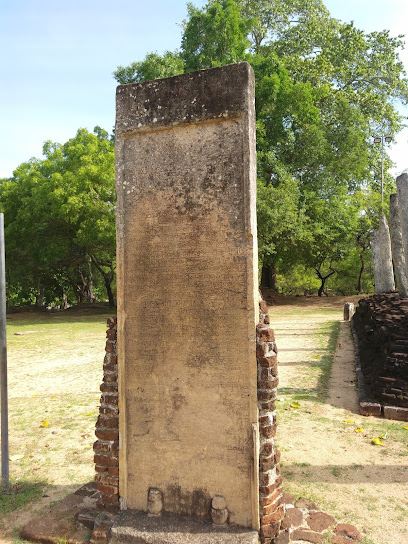
Pohoyageya
0.1 km
Explore the rich heritage and stunning architecture of Pohoyageya in Polonnaruwa, a must-see historical landmark in Sri Lanka.
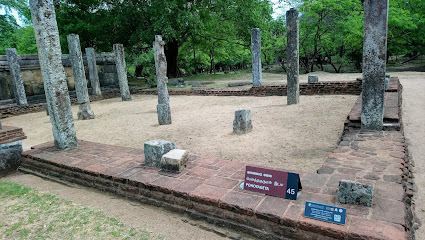
පොළොන්නරුව උතුරු දොරටුව අසල පුවරු ලිපිය
0.2 km
Unravel the secrets of Sri Lanka's past at the ancient city of Polonnaruwa, a UNESCO World Heritage site filled with stunning ruins and rich history.
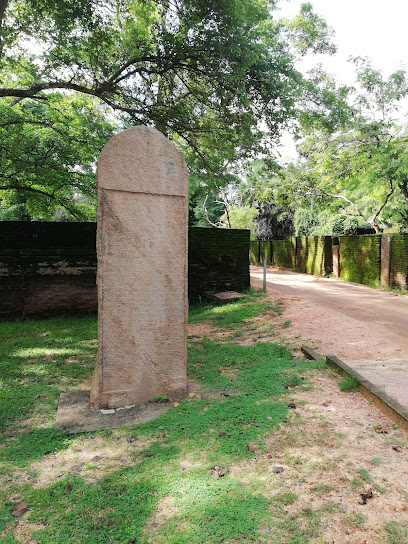
Polonnaruwe Slab Inscription at the North Entrance to the Citadel
0.2 km
Explore the Polonnaruwa Slab Inscription, a historical marvel in Sri Lanka that reveals the artistry and culture of an ancient civilization.
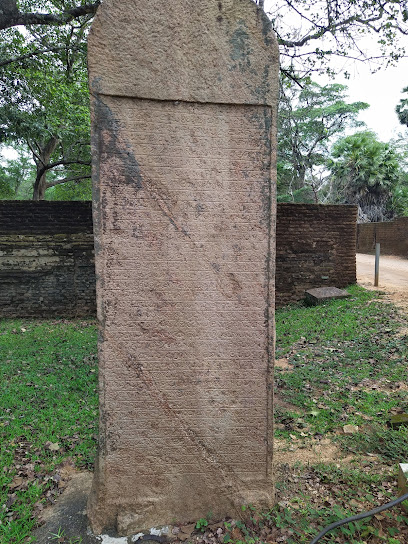
Kumara Pokuna
0.6 km
Explore the tranquil beauty of Kumara Pokuna, a historic pond in Polonnaruwa, Sri Lanka, reflecting the ancient splendor of a bygone era.
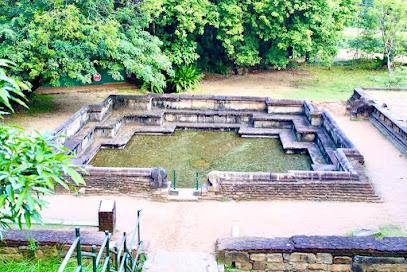
Polonnaruwa Siva Devale No.2
0.7 km
Discover the serene beauty and rich history of Polonnaruwa Siva Devale No.2, an ancient Hindu temple steeped in cultural significance and architectural splendor.
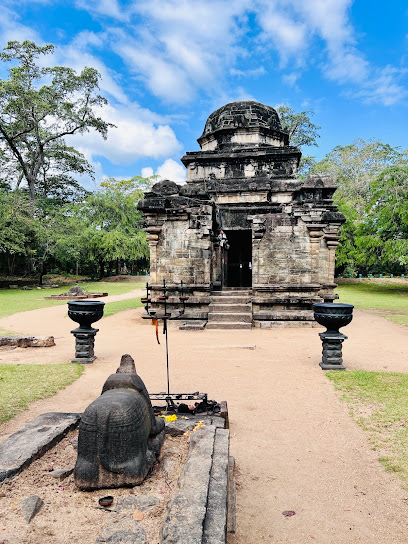
Eastern Gate
0.7 km
Explore the Eastern Gate of Polonnaruwa, a historical landmark showcasing ancient Sri Lankan architecture and rich cultural heritage.
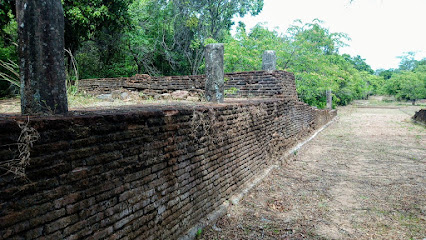
Rankoth Vehera
1.2 km
Explore Rankoth Vehera, a monumental stupa in Polonnaruwa, showcasing the grandeur of Sri Lanka's Buddhist heritage amidst tranquil surroundings.
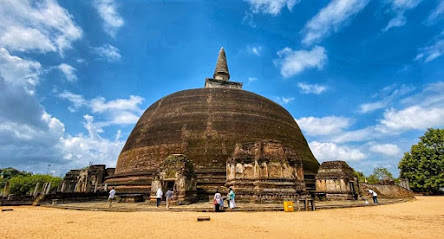
Ancient Bhikku Hospital
1.4 km
Discover the Ancient Bhikku Hospital in Polonnaruwa, a historical landmark that reveals the advanced medical practices of ancient Sri Lanka amidst serene surroundings.
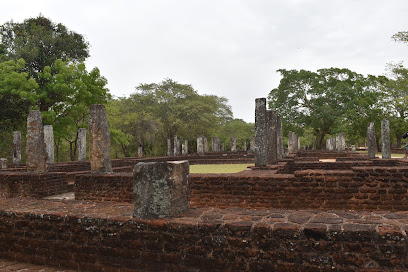
Unmissable attractions to see
Nissanka Lata Mandapa
0.0 km
Explore the Nissanka Lata Mandapa, a remarkable historical landmark in Polonnaruwa, reflecting the rich heritage and stunning architecture of ancient Sri Lanka.
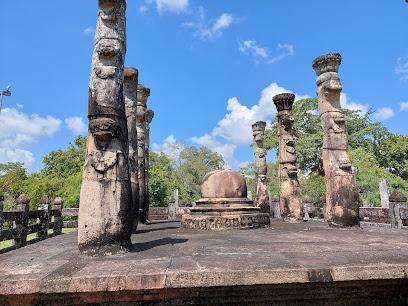
Hatadage
0.0 km
Explore Hatadage in Polonnaruwa, a magnificent historical landmark showcasing ancient Sri Lankan architecture and rich cultural heritage.
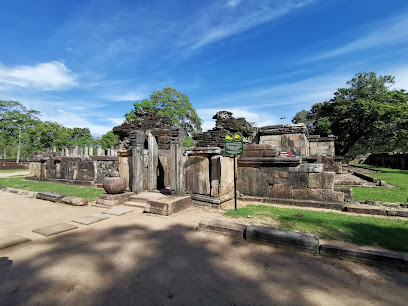
Vatadage
0.0 km
Discover the historical wonders of Vatadage, a stunning Buddhist temple and landmark in Polonnaruwa, showcasing Sri Lanka's rich heritage.
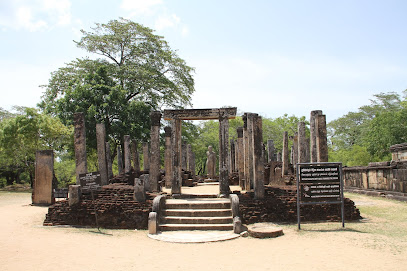
Thuparama Image House - 31(Image of Boddhisathwa)
0.0 km
Explore the Thuparama Image House in Polonnaruwa, a historical landmark showcasing incredible ancient sculptures and Buddhist artistry.
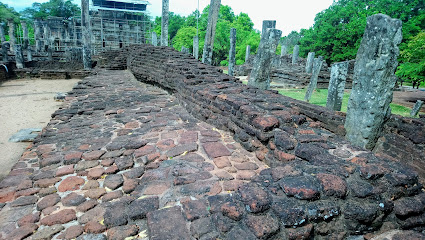
Western Entrance of the Sacred Quadrangle
0.0 km
Explore the Western Entrance of the Sacred Quadrangle, a historical landmark in Polonnaruwa showcasing ancient architecture and rich cultural heritage.
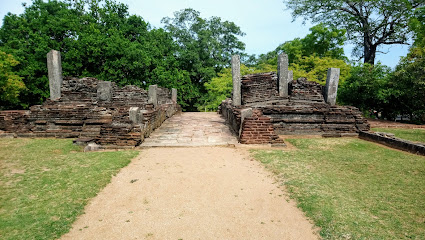
Sathmahal Prasadaya (සත්මහල් ප්රාසාදය) - 51
0.1 km
Discover the architectural marvel of Sathmahal Prasadaya, a unique seven-storeyed pyramid in Polonnaruwa, rich in history and beauty.
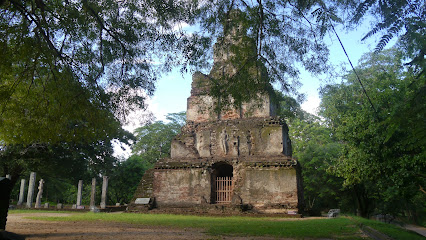
Polannaruwa historical place
0.2 km
Explore Polonnaruwa: A UNESCO World Heritage Site showcasing the splendor of Sri Lanka's ancient civilization through its breathtaking ruins and historical landmarks.
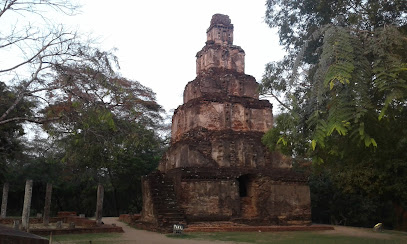
Polonnaruwa Sivan Kovil
0.2 km
Explore the historical and spiritual significance of Polonnaruwa Sivan Kovil, a stunning Hindu temple rich in culture and architecture.
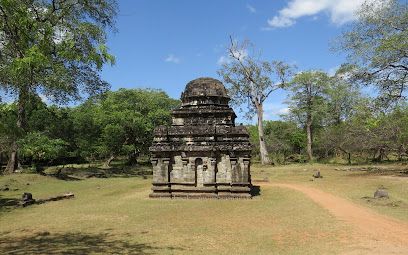
පොළොන්නරුව උතුරු දොරටුව අසල පුවරු ලිපිය
0.2 km
Discover the rich history and architectural wonders of Polonnaruwa, a UNESCO World Heritage Site that showcases Sri Lanka's medieval glory.
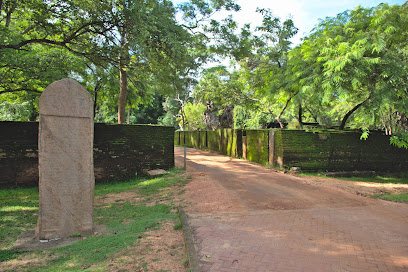
Archaeological Site Gate Polonnaruwa
0.2 km
Explore the majestic ruins of Polonnaruwa, a UNESCO World Heritage site showcasing Sri Lanka's rich history and architectural marvels.
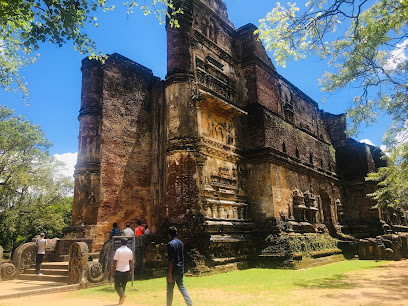
Polonnaruwa Ancient City
0.2 km
Discover the ancient wonders of Polonnaruwa, a UNESCO World Heritage site that showcases Sri Lanka's rich history and architectural brilliance.
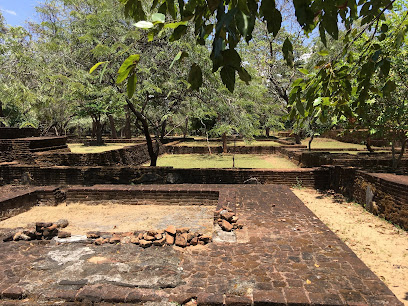
Citadel Rampart
0.2 km
Discover the stunning Citadel Rampart in Polonnaruwa, a historical landmark showcasing ancient Sri Lankan architecture and breathtaking views.
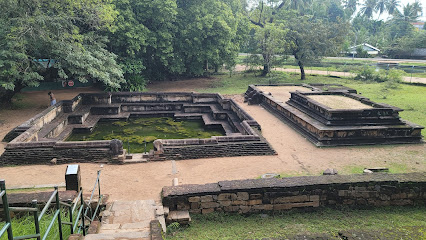
Pabalu Vehera
0.4 km
Immerse yourself in the rich history of Pabalu Vehera, an ancient stupa in Polonnaruwa, Sri Lanka, and explore the beauty of its architectural brilliance.
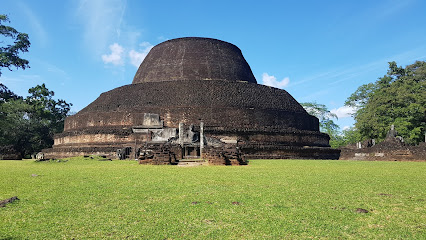
Polonnaruwa Siva Devale No.7
0.5 km
Explore the rich cultural heritage of Sri Lanka at Polonnaruwa Siva Devale No.7, a historical landmark showcasing exquisite ancient architecture.
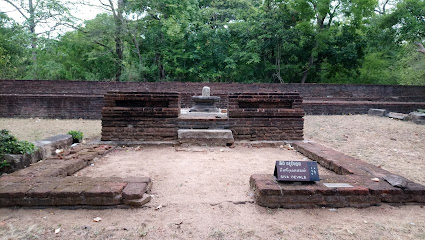
Deepa Uyana
0.5 km
Discover the beauty of Deepa Uyana, a tranquil park in Polonnaruwa, where nature and history intertwine in a serene escape.
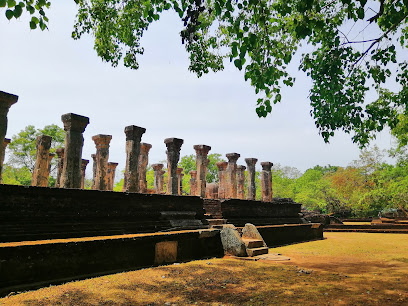
Essential places to dine
Duminda Restaurants
0.1 km
Discover authentic Asian cuisine at Duminda Restaurants in Polonnaruwa – where every dish tells a story of flavor and tradition.
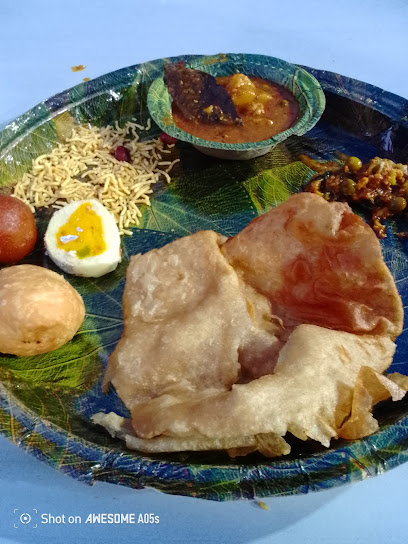
Eat out
0.8 km
Experience authentic Sri Lankan flavors in a family-friendly atmosphere at this charming Polonnaruwa restaurant.
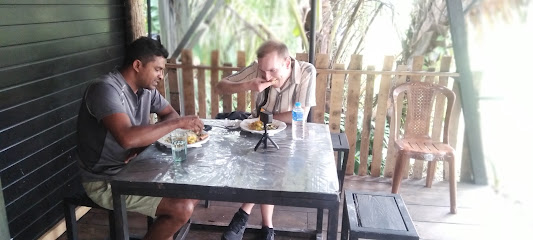
Mihiri Food
0.8 km
Experience authentic Sri Lankan flavors at Mihiri Food – a culinary gem on your journey through Polonnaruwa.
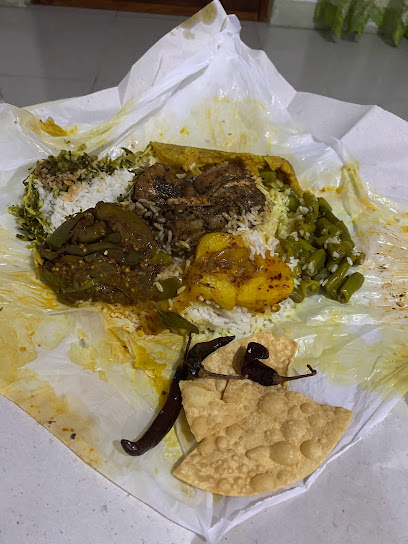
Sunrise & Akila Restaurant
0.8 km
Experience authentic Sri Lankan flavors at Sunrise & Akila Restaurant in Polonnaruwa – where tradition meets taste.
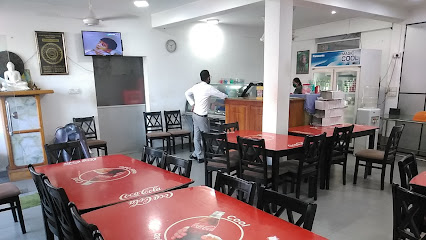
Grandma restaurant
0.8 km
Experience traditional Sri Lankan flavors at Grandma Restaurant in Polonnaruwa - a must-visit dining spot for every traveler.

Summer Haven Restaurant
0.8 km
Discover authentic Sri Lankan flavors at Summer Haven Restaurant in Polonnaruwa - an unforgettable culinary experience awaits you.
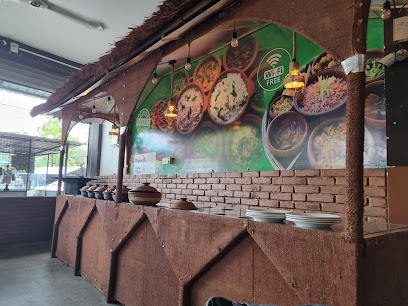
Kadamandiya Family Restaurant
0.8 km
Experience family-friendly dining at Kadamandiya Family Restaurant in Polonnaruwa - where local flavors meet warm hospitality.
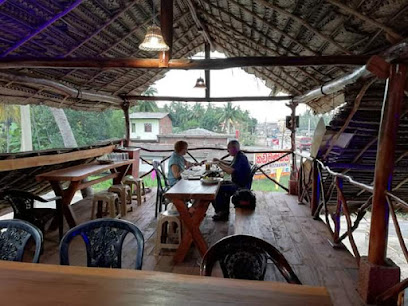
Mahajana Hotel & Bake House
0.8 km
Experience authentic Sri Lankan flavors at Mahajana Hotel & Bake House in Polonnaruwa – where tradition meets taste.
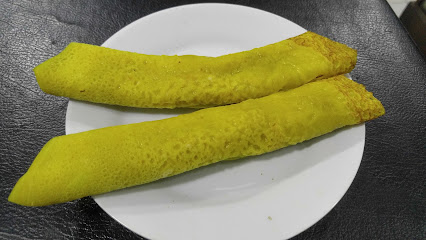
Mr.punsiri's kitchen
0.8 km
Discover authentic Sri Lankan flavors at Mr. Punsiri's Kitchen in Polonnaruwa - where every dish tells a story.
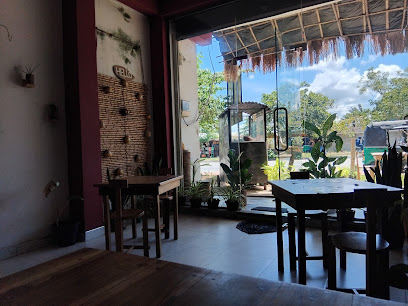
Hotel Darshana & Restaurant
0.9 km
Experience authentic Sri Lankan flavors at Hotel Darshana & Restaurant - a top culinary destination in Polonnaruwa.

Hungry Muppets Restaurant & Cafe
0.9 km
Savor the fusion of Sri Lankan and Western cuisines at Hungry Muppets Restaurant & Cafe in Polonnaruwa - a culinary gem for every traveler.

Dine Home Restaurant
1.1 km
Experience authentic Sri Lankan flavors at Dine Home Restaurant in Polonnaruwa - perfect for families seeking delightful meals.
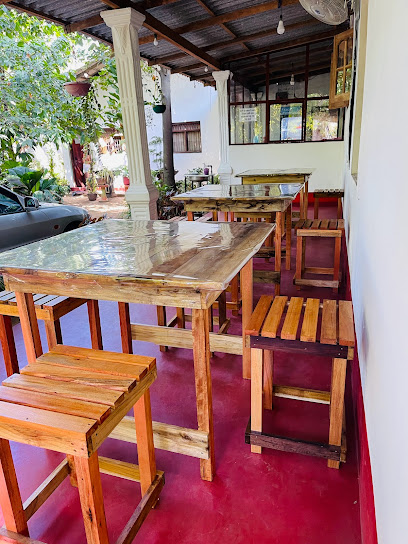
Wijay restaurant and bakera
1.2 km
Discover authentic Asian flavors at Wijay Restaurant and Bakery in Polonnaruwa - where tradition meets taste.
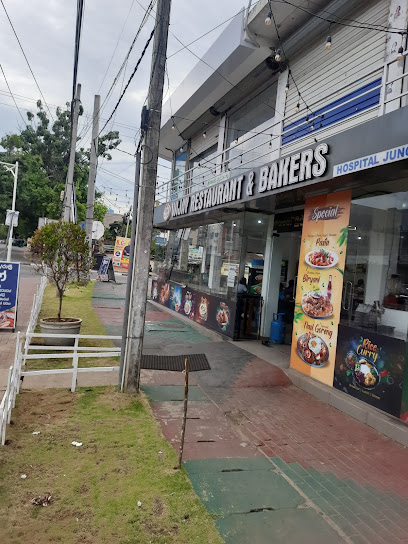
කවලං
1.3 km
Experience authentic Sri Lankan cuisine at කවලං in Polonnaruwa – where every dish tells a story of flavor and tradition.

Kottu Place
1.3 km
Discover authentic Chinese flavors at Kottu Place in Polonnaruwa - where culinary excellence meets warm hospitality.

Markets, malls and hidden boutiques
Polonnaruwa City Centre
0.8 km
Explore Polonnaruwa City Centre: A vibrant shopping mall offering a blend of local crafts, international brands, and delightful dining experiences.
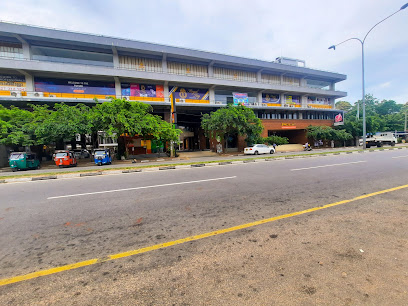
Kalyani Cut Peace Center
0.9 km
Discover the vibrant and affordable fashion offerings at Kalyani Cut Peace Center in Polonnaruwa, where local style meets exceptional value.
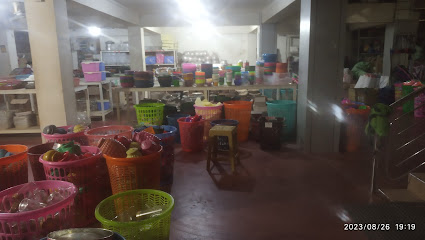
Globe international computers - Polonnaruwa Branch, Hospital Junction, Polonnaruwa, Sri Lanka.
1.2 km
Discover the latest technology and expert guidance at Globe International Computers in Polonnaruwa, Sri Lanka's tech hub.

Vision Care - Polonnaruwa
1.3 km
Explore Vision Care - Polonnaruwa for exceptional eye care and stylish eyewear, ensuring your vision is as clear as the stunning landscapes of Sri Lanka.

Cargills Food City - Polonnaruwa
1.3 km
Discover the vibrant flavors of Sri Lanka at Cargills Food City - your go-to supermarket in Polonnaruwa for local and international delights.
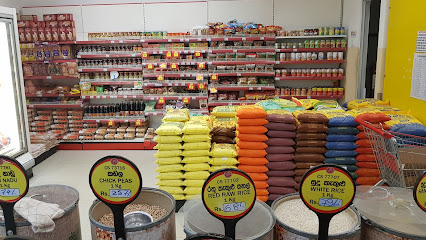
Galusiri Fancy House
1.3 km
Discover the essence of Sri Lankan craftsmanship and culture at Galusiri Fancy House in Polonnaruwa, where unique treasures await every visitor.
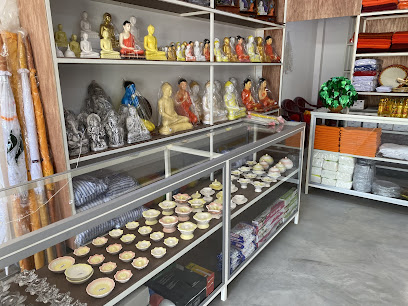
Wajira Storse
1.4 km
Explore local flavors at Wajira Storse, a charming grocery store in Polonnaruwa, perfect for tourists seeking authentic Sri Lankan ingredients.
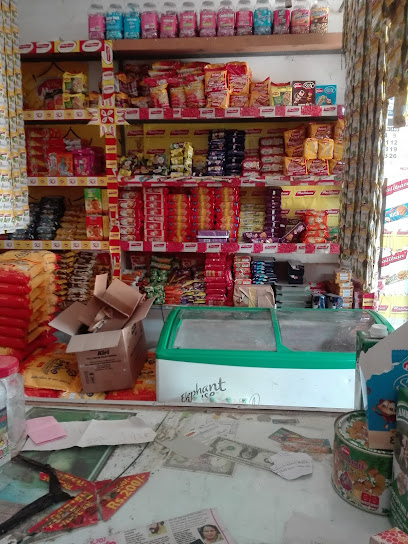
Nethmina Cellular Polonnaruwa
1.4 km
Discover Nethmina Cellular Polonnaruwa – your essential stop for mobile devices and accessories in the heart of Sri Lanka's ancient city.
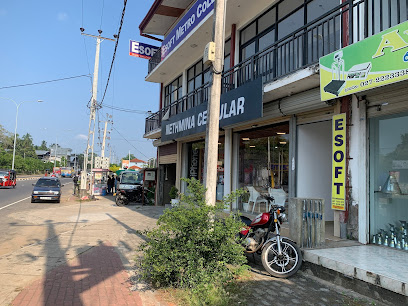
Brandix Athleisure Polonnaruwa
1.7 km
Discover the art of Sri Lankan athleisure at Brandix Athleisure Polonnaruwa, where quality fabrics meet innovative designs in a sustainable shopping experience.
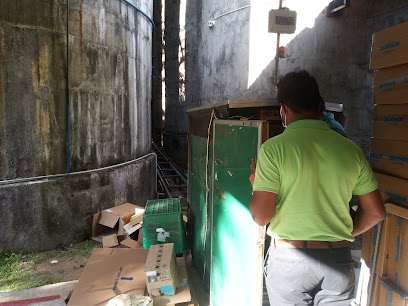
Venus Pharmacy
2.0 km
Discover essential health needs at Venus Pharmacy in Polonnaruwa - your trusted stop for medications and personal care while exploring Sri Lanka.
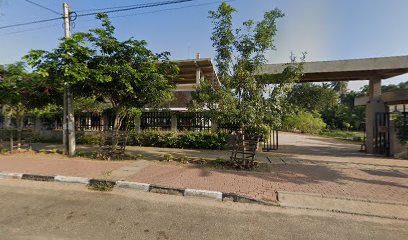
Jayalanka stores
2.1 km
Experience convenience and local flavors at Jayalanka Stores, your go-to supermarket in Polonnaruwa, Sri Lanka.
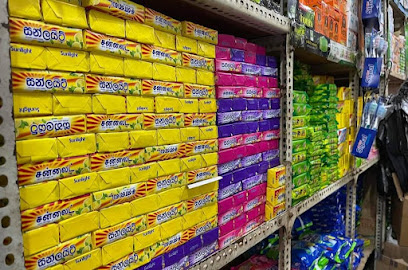
Ishara
2.1 km
Explore the literary treasures of Ishara, a delightful bookstore in Polonnaruwa, where every book tells a story of Sri Lanka's rich culture.
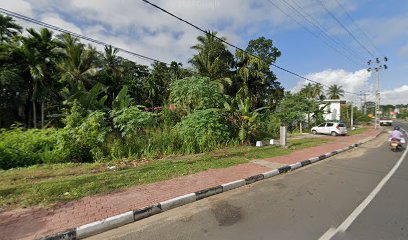
Welimada
2.1 km
Explore Welimada in Polonnaruwa for unique souvenirs and an authentic experience of Sri Lankan culture and craftsmanship.
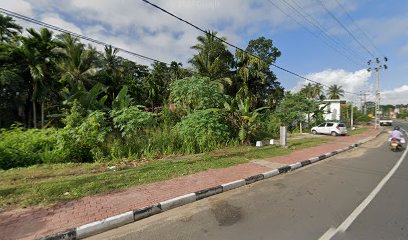
Vishwa Tex & tredars
2.1 km
Explore Vishwa Tex & Tredars in Polonnaruwa for unique clothing and a taste of Sri Lankan textile artistry.
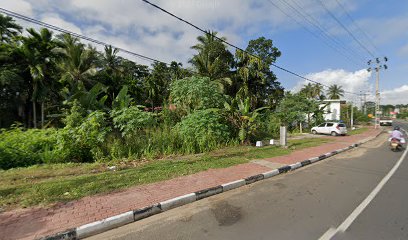
Kulfi Cool Spot
2.1 km
Discover the sweet flavors of traditional Sri Lankan kulfi and ice cream at Kulfi Cool Spot in Polonnaruwa, a must-visit for dessert lovers.
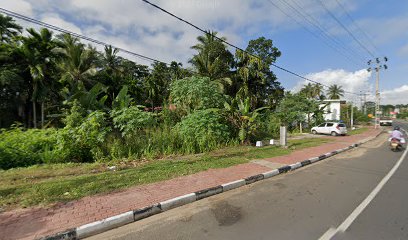
Essential bars & hidden hideouts
Highland milk bar
1.0 km
Experience the taste of Sri Lanka at Highland Milk Bar in Polonnaruwa, where local flavors and culture blend seamlessly.

BHP
1.1 km
Discover the vibrant nightlife at BHP in Polonnaruwa, where locals and tourists gather to enjoy drinks, live music, and a welcoming atmosphere.
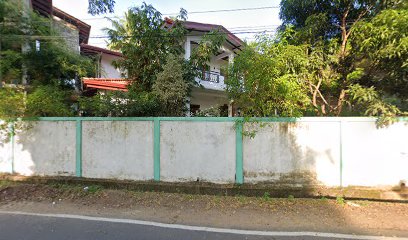
Midland Beer Shop
1.2 km
Explore Midland Beer Shop in Polonnaruwa for a unique selection of beers and wines in a welcoming atmosphere, perfect for tourists.
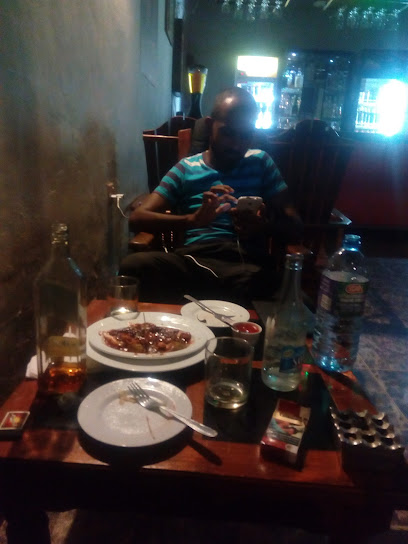
D & C Juice bar
1.2 km
Experience a refreshing escape at D & C Juice Bar in Polonnaruwa, where fresh juices and local flavors come together in a cozy atmosphere.
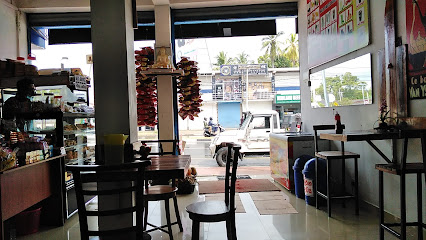
Cloud 7 Rooftop Restaurant
1.3 km
Experience stunning views and delicious cuisine at Cloud 7 Rooftop Restaurant in Polonnaruwa, a must-visit for food lovers and tourists.
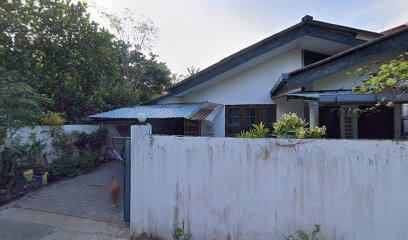
Lahiru homes
2.2 km
Discover relaxation at Lahiru Homes, a serene bar in Polonnaruwa perfect for unwinding after exploring ancient ruins.

Goviya's Place
2.4 km
Experience the vibrant nightlife of Polonnaruwa at Goviya's Place, where local flavors and a lively atmosphere come together.

Hotel Sudu Araliya
2.9 km
Experience the perfect blend of comfort and culture at Hotel Sudu Araliya in Polonnaruwa, Sri Lanka.
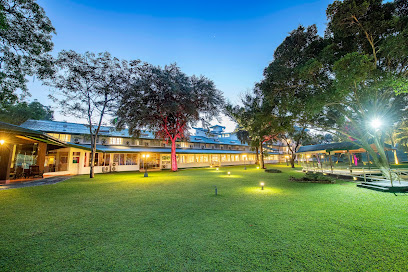
Midland cafe
3.8 km
Experience the flavors of Sri Lanka at Midland Cafe in Polonnaruwa, where delicious cuisine meets warm hospitality in a charming setting.
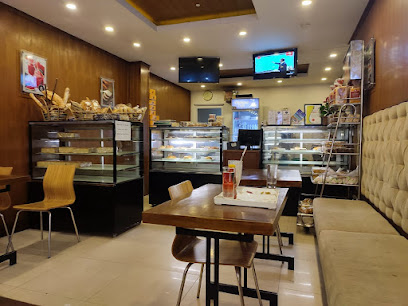
chef food
3.9 km
Discover the vibrant culinary scene at Chef Food in Polonnaruwa, where local flavors meet a lively bar atmosphere.
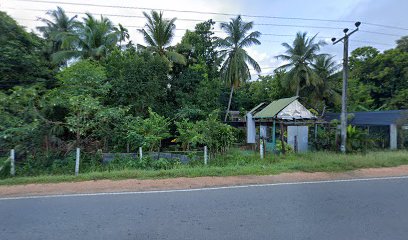
Midland Wine Stores
4.4 km
Explore a diverse selection of local and international wines at Midland Wine Stores in Polonnaruwa, a true haven for wine lovers.

කුකුලාගෙ ගෙදර
10.0 km
Discover Kuku Lagay Gedara, a lively bar in Sri Lanka offering delicious drinks and a vibrant atmosphere for an unforgettable night.

Sandpiper Bar
10.4 km
Discover the tranquil allure of Sandpiper Bar in Girithale, a perfect spot for relaxation with refreshing drinks and beautiful surroundings.
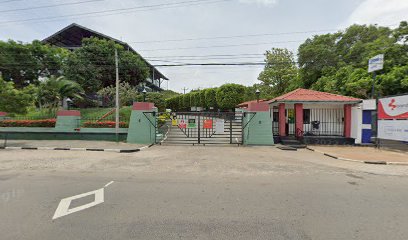
Hingurakgoda Wine Rathna Store Bar
11.8 km
Discover the charm of Hingurakgoda Wine Rathna Store Bar - a wine lover's paradise with a cozy atmosphere and affordable selections.
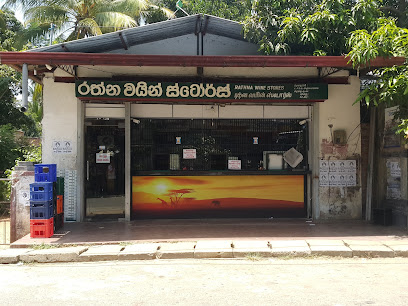
Gunners Pub
16.6 km
Experience the vibrant nightlife at Gunners Pub in Minneriya, where local flavors and friendly ambiance invite you to unwind and connect.
